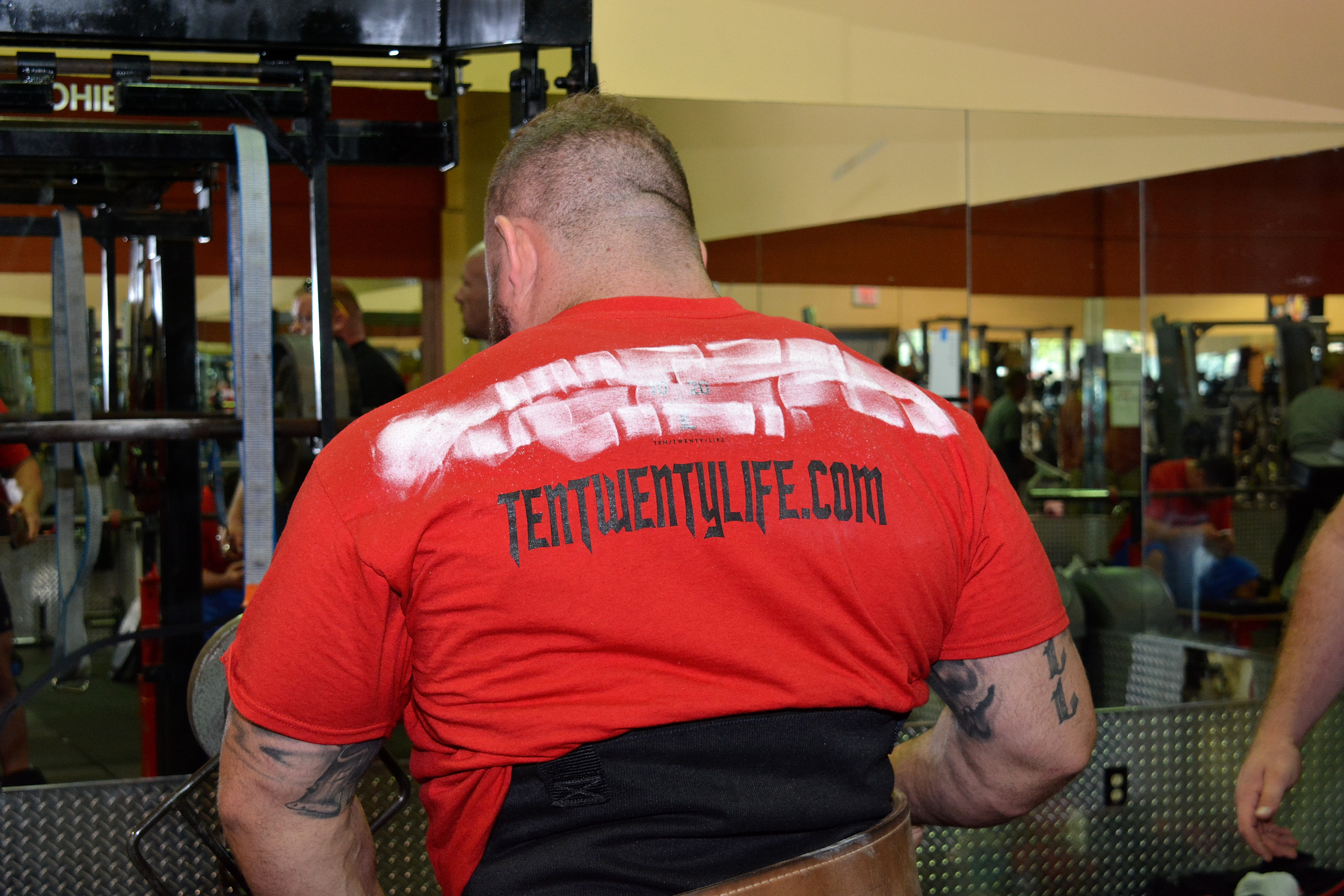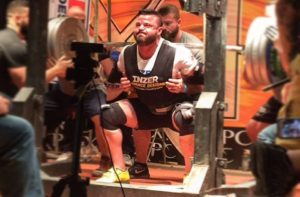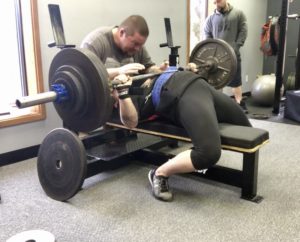
07 Dec You’re Hurt, So What?!
By: Paul Oneid
You have just taken a year off of competition to work on weaknesses and build your total. Everything is clicking on all cylinders in training. You’re hitting rep PRs with weights that used to be maximal. Your body has transformed and you feel bulletproof. You pick a meet and set your eyes on that date 10 weeks away. All of a sudden, you’re in pain. You might deload, see if it gets better and try again. You might fight through it for a week or two. No matter what you do in terms of prehab, rehab, corrective exercise, or recovery modalities – the pain doesn’t go away and it finally hits you – you have a serious injury that needs attention.
If you are trying to force your body to do things that it doesn’t want to do, it will rebel against you at some point. It does this with pain. This pain can be increased DOMS (delayed onset muscle soreness), tendonitis, small tweaks or strains, but sometimes it can manifest as something larger. With the less major presentations of pain you can deload and increase your recovery work and you will overcome it pretty easily. These are instances where you are hurt. When the presentation of pain is an injury, the recovery becomes a tad bit complicated physically, as well as mentally. Being hurt means you can train around it. Being injured means that you need medical attention and cannot train through it. There is a difference.
Being injured is a problem from a physical standpoint, as well as a psychological one. The worst part about this is that the two are not mutually exclusive. When you experience pain, you think about it. Your perception of that pain influences how you experience it. If you scraped your knee, but I told you it was infected (even though it wasn’t) it would automatically hurt more. Your perceptions influence your realities. Your mind controls your body. This is your biggest asset, but it is also your biggest obstacle on the road to recovery. We must change the way we think about our injury, our pain and our future performances in order to overcome it effectively.
You had to drop out of the meet. So what?!
The sport is not going anywhere. In 99% of cases, you will be able to return to your sport after you recover from your injury. In powerlifting, there are meets almost every weekend across the world. Dropping out of one meet doesn’t end your career. There will be others.
If I had only done X/Y and Z I wouldn’t have gotten hurt. So what?!
Unless you have a time machine, you can’t reverse your current situation. If you do have a time machine, please disregard this article and enjoy counting your gazillions of dollars. You are injured and that is a reality. Focusing on what you could or should have done will not assist you in your current situation. All you can do is speculate. Accept that you cannot control what has happened and learn from it moving forward. If there is a clear pattern that led to your injury, just make sure not to allow that pattern to repeat itself and move forward with your life.
You have surgical date weeks/months away. So what?!
You have been awarded a time in your training life where you can have fun. Being injured means you get to be creative with how you train. With the exception of some head, back, neck, pelvic or internal injuries you will likely still be able to train in some capacity. You should find out what you can do and do it immediately. Staying away from training entirely is the worst mistake you can make. Training gives you purpose and direction. It helps release stress. It makes you feel good. Take the time until your surgery to do things you don’t normally do. In 10/20/Life fashion, make sure these activities have a purpose, but enjoy the process.
You feel like you’re spinning your wheels. So what?!
You are training in some capacity and therefore you are improving. Set small goals work towards those. Find a way to distract yourself from the negativity in your mind and focus on something positive. This goal can be training related, or not. It doesn’t matter because if you are working towards something, you aren’t spinning your wheels.
I don’t want to lose all that I have worked for. So what?!
If you actually believe that you will lose all of your abilities after even a few months of decreased activity you need a serious reality check. Strength gains are related to muscle size, but this will be maintained to a great degree if you are still active/training. Strength is also a largely neurological adaption that also will be maintained if you are still active and training. I hate to use the term “muscle memory” because it doesn’t do the nervous system justice, but those neural pathways will still be there when you return to training. They just need to be stimulated again.
I want to be ready and compete again on this date. So what?!
Setting a timeline for your recovery is great, but it needs to be realistic and achievable. If you have a knee scope and expect to be back squatting heavy within 8-12 weeks, you are seriously misled. Now, the term heavy is relative, but the longer you give your body to adapt and rebuild the more successful your recovery will be. Not only does your repaired area need to recover, your mind needs to recover as well. If you have a knee surgery, there will be fear every time you bend your knees to squat. Until that goes away, you’re not ready to compete. Take your time.
I am getting really depressed. So fucking what?!
As long as you are controlling all the factors of your injury that you can control, being depressed is a waste of energy. It is something everyone with any shred of competitive drive experiences and it is normal, but you when you put everything into perspective feeling sorry for yourself doesn’t do you any good. Are you seeking treatment? Are you doing your rehab/prehab? Are you training what you can train? Are you eating and sleeping optimally? Are you using recovery modalities effectively? If you answer yes to the questions above, there is nothing you can feel sorry for yourself about.
The injury cannot be reversed and life goes on. When you spiral into negative self-talk it is important to remind yourself of the positives and focus on that which you can control. Allowing yourself to be depressed will only cause your perception of the pain and injury to be worse. This will only serve to elongate your recovery. Don’t worry! Your injury is likely only temporary and you will be able to use the experience to be mentally stronger and more resilient in your future competitive endeavors.
**Remember – Happy people feel less pain and heal faster. BOOM, SCIENCE!**
Paul Oneid
Latest posts by Paul Oneid (see all)
- A Proposition for a Paradigm of Planning Your Personal Periodization - March 4, 2019
- Paul Oneid –> Off-Season | Feet Up Bench PR and Some Squats - March 1, 2019
- Paul Oneid –> Off-Season | A bit of everything - February 21, 2019







Sorry, the comment form is closed at this time.